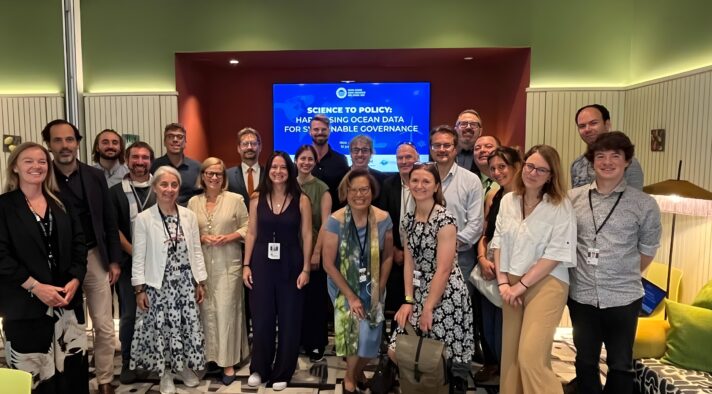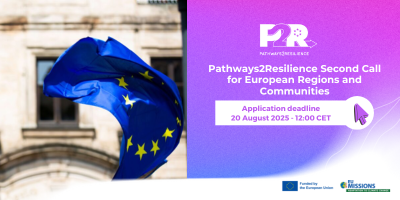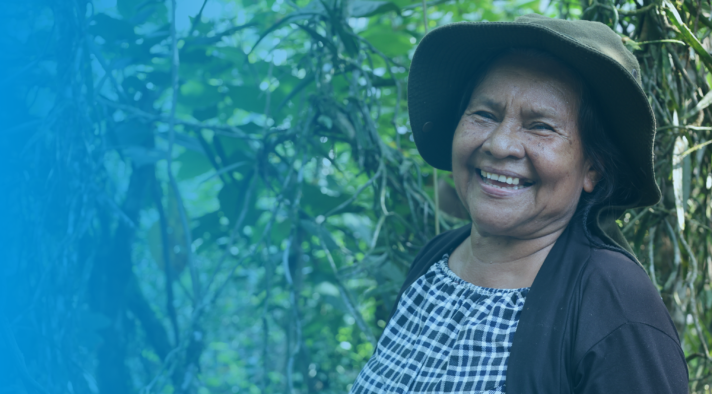Explore innovative actions that Regions4 and RegionsAdapt members are bringing to the UNFCCC COP28 in Dubai
In 2019, Regions4 launched the global campaign #RegionsVoice in a collective effort to bring the voice of regional governments to the major events and negotiation processes in sustainable development within the UN. The aim of the campaign is to ensure the visibility and wider recognition of the role of regional governments in sustainable development, by elevating both individual and collective messages and engaging with a wider audience during the UN Decade of Action.
Click on the title to see the full social media post
Basque Country Soil Protection Strategy 2023
Soil is a multifunctional ecosystem that is crucial for the sustainable development of a territory.
The Basque Government recognises the complexity of soil and has worked with the “Euskadi Soil Protection Strategy 2030”. Read more in Regions4’s dedicated article
Jalisco Reviving Santiago River
The Santiago River in Mexico has an impressive extension of more than 400 kilometres, but it is not entirely healthy. The “Reviviving Santiago River” strategy of the Government of Jalisco is a regional commitment to recover this natural treasure. In the most recent #RegionsVoice article, read how the Public Policy for the recovery of the Santiago River led by the
Government of Jalisco seeks to improve environmental and social conditions in the region. Read more in Regions4’s dedicated article.
California Climate Vulnerability Metric
In State of California, the California Air Resources Board has developed the Climate Vulnerability Metric to better understand the impacts of climate change on human welfare.
Relying on more local data could provide the correct scale for analysis of climate impacts on disadvantaged populations at the community level. The CMV is the first metric in California specifically focused on quantifying the community level impacts of warming climate. Read more in Regions4’s dedicated article.
South Australia Climate Change Science and Knowledge Plan
In South Australia, extreme weather events are exponentially increasing. Tackling climate change demands high-quality, accessible information to guide risk assessment and climate action. The “Climate Change Science and Knowledge Plan,” updated in 2022, provides high-quality information to drive decision-making across government, business, and communities to plan for a climate-resilient future. Read the document here
Council of Governors Financing Locally-Led Climate Action
Kenya’s National Government is unlocking Sh7.4 billion (USD 50 million) in grants for subnational governments through the “Financing Locally-Led Climate Action” (FLLoCA) Programme. Counties will receive support to develop tailored climate resilience strategies, addressing risks in sectors like agriculture and water. By equipping communities with tools and resources, regions are better prepared for the challenges brought forth by climate change. Read more

Lombardy’s Regional Programme for Energy, Environment and Climate
The region of Lombardy in Italy is making significant strides towards sustainability with its Regional Programme for Energy, Environment and Climate (PREAC). In alignment with the broader European iniatives such as the “Green Deal” and “Fitfor55,” Lombardy is leading the charge for an ecological conversion. Read More in Regions4’s dedicated article

Basque Country : Climate Change from a Gender Perspective
The vulnerability of women to climate change is recognized as a form of structural violence. Ihobe, from the Basque Government, in collaboration with Emakunde, is actively working to integrate the gender perspective effectively into its policies on energy transition and climate change for a more inclusive approach. Read more

Yucatán leads the initiative for Strengthening Adaptation Capacities to #ClimateChange in Milpa Maya. In partnership with the Secretary fo Woman, it aims to ensure the effective participation of women in promoting sustainable agricultural practices. Rural women represent a substantial proportion of the agricultural workforce but have fewer opportunities to access land, credit, and high-value agri-food chains. Additionally, they often receive lower prices for their crops. Read more in Regions4’s Case Study Database

Baja California Sur’s State Climate Change Law
This initiative, developed with the support of the Mexico UK-PACT Programme and in collaboration with POLEA, represents a vital milestone in environmental legislation. In addition to partnership and economic support, the government is actively enhancing its state regulatory framework on climate change.The recent signing of the Memorandum of Understanding signifies a commitment to the development of the Climate Change Law Regulation. Read more in Regions4’s Knowledge Hub.

Scotland 2022 Guide to Adaptation Finance
The 2022 Guide to Adaptation Finance, published by the Government of Scotand, is a game-changer, offering insights from an expert working group. This guide, launched in 2022, provides stakeholders with the knowledge and skills required to finance adaptation projects . Accompanied by case studies evaluating adaptation financing options in Scotland, it serves as a valuable resource. Read the guide here

The Management Cooperation Agreement, established in 2022, showcases the power of collaboration between Parana’s government (through IAT), Ângelo Kretã, and Sedest, enabling self-management of the Metropolitan State Forest. This story was featured in the UNFCCC Yearbook , as well as RegionsAdapt 2023 Report
Wales’s National Peatland Action Programme
Peatlands play a crucial role in the fight against climate change, storing up to a third of the world’s soil carbon. The Welsh Government is working with the National Peatland Action Programme (NPAP) to facilitate the coordination of efforts in key areas of peatland damage for the linked benefit of biodiversity, decarbonisation and other ecosystem services in the territory. The programme aims to restore and impact between 600 and 800 hectares a year of public and private land. This story was featured in the UNFCCC Yearbook, as well as Regions4’s Case Study Database
KwaZulu-Natal’s Transformative Riverine Management Programme
Kwazulu-Natal province in South Africa is increasing resilience in riverine areas through a community-based strategy for climate risk-management. The initiative tackles two main challenges: unmanaged waste and the spread of invasive alien plants, and has strong focus on community involvement, capacity/skills development and the creation of economic opportunities for low-income populations. This story was featured in the UNFCCC Yearbook, as well as on Regions4’s Knowledge Hub.

Québec’s Commitment to Adaptation Finance
At Adaptation Futures 2023, the government of Québec pledged an additional CAD10 million to the Adaptation Fund, showcasing once more their commitment to international climate cooperation. Other ways of supporting global adaptation is through the International Cooperation Programme, working in partnership with local organizations. The Québec-California carbon market is a game-changer, directing over CAD900 million to major cities and municipalities since 2021 In their 2023 economic update, an additional CAD500 million was announced, reinforcing their dedication to green adaptation plans and projects
Flanders’s Participation in CLIMATEFIT
CLIMATEFIT is on a mission to support EU territories in their climate adaptation journey. Excitingly, 32 partners, including 18 regional stakeholders, are on board, with Flanders proudly among them! Kicking off in September 2023, CLIMATEFIT is set to revolutionize climate finance by empowering financing & investment entities to identify and access resilient investment opportunities. Read the Press Launch here

Basque Country Soil Protection Congress
On this #WorldSoilDay, we invite you to take a closer look into the Basque Country Soil Protection Strategy 2030. Soil provides 95% of the food we eat, is fundamental for biodiversity and fixes greenhouse gases, but a recent survey showed that only 30% of the population in the Europen Union considered soil degradation as a relevant environmental issue. The Basque Country Government stands out by shifting from a contamination-focused approach to a comprehensive land management strategy. As collaboration and knowledge sharing enable the effectiveness of the implementation of the projects, In October, Ihobe brought together around 250 specialists, promoting reflection on the challenges of #SoilProtection from different perspectives, and showcasing good practices, both at regional and #EuropeanLevel. Discover the outcomes of the conference

Minas Gerais State Climate Plan
One of the four pillars of the Government of Minas Gerais’ newly published State CLimate Action plan is climate justice. This pillar proactively addresses the protection of the human rights of marginalised communities and confronting territorial and historical disparities. Read more in RegionsAdapt 2023 Progress Report

Québec’s 2023 Plan for a Green Economy
The 2030 Plan for a Green Economy, led by the Government of Québec, aims to achieve a Just Transition, ensuring equitable distribution of social, economic, and environmental benefits and costs among stakeholders in society. Among its various initiatives, the Government of Québec is actively involved in developing and building vocational, technical, academic, and continuing education training necessary for the climate transition. Read the document here and Read more in RegionsAdapt 2023 Progress Report
Catalonia’s Social Climate Change Forum
Established in 2022, Catalonia’s “Taula Social del Canvi Climàtic”, or Social Climate Change Forum, selected 65 representatives from diverse sectors to shape policy dialogues and advice the Department of Climate Action. Backed by the Government of Catalonia and society, it operated under the Climate Change law, amplifying voices from all corners of Catalonia to fight Climate Change. Read more in RegionsAdapt 2023 Progress Report

The Welsh government, along with partners such as Bangor University, MEGTE, and NARO Uganda, demonstrates its commitment to sustainability through the development of ‘biopots.’ This innovative solution not only inspires positive change in Uganda but also has the potential to revolutionize tree planting in Equatorial Africa, mitigating plastic waste and minimizing ecosystem damage. Read more on the Regions4 Knowledge Hub.
Rabat-Salé-Kenitra’s Regional Coastal Plan + [FRA]
Morocco’s coastal health is vital for biodiversity and coastal communities, especially those reliant on the blue economy. The World Bank supports the Regional Coastal Plan, a collaborative project engaging various stakeholders to plan a sustainable future for coastal resources. This participatory effort has produced a guide for regional coastal plans, and the World Bank intends to extend this innovative approach nationwide, prioritizing the consideration of local nuances. Read the guide here.

Cross River State’s Sustainable Fuelwood Management Initiative
Fuelwood plays a crucial role in the lives of African people, but its widespread use often contributes to deforestation. In the Cross River state of Nigeria, the Sustainable Fuelwood Management initiative employs agroforestry to enhance fuelwood production and promote the adoption of clean cook stoves. With backing from the Global Environment Facility (GEF) and the United Nations Development Programme (UNDP), Cross River State has strengthened the capacity of landlord forest communities in cultivating fast-growing trees. This effort has resulted in the establishment of 72 hectares of agroforestry and the fabrication of 1792 stoves. Read more on the Regions4 Knowledge Hub
Embarking on a decade-long journey, the state of Rio de Janeiro in Brazil transforms into a blue metropolis with the Water2030 initiative. From significant strides in sanitation to the restoration of the Atlantic Forest, Rio pioneers a sustainable future. The governor of Rio de Janeiro charts a bold course with the Water2030 initiative, prioritizing water safety, climate resilience, and sustainable development. From addressing challenges in Guanabara Bay to fostering a dynamic blue economy, Rio emerges as a model for global innovation. More information on the Regions4 Knowledge Hub.
Yucatan’s Milpa Maya Project + [SPA]
Yucatán leads the initiative to strengthen adaptive capacities to climate change in the Maya Milpa, focusing on effective participation of women in promoting sustainable agricultural practices in partnership with SeMujeres. Rooted in ancient Maya agronomy, the milpa system sustains maize, beans, and squash crops without artificial pesticides or fertilizers. This crucial activity for Mexico’s rural communities is now highly vulnerable to climate change. Read more details in the Regions4 Case Study Database.

Sao Paulo State’s Green Portfolio
At COP28, the State of Sao Paulo promoted the launch of its Green Portfolio, which provides a mapping of approximately 20 thousand hectares of available areas in the State for reforestation actions. The document aims to attract private initiative for the expansion of vegetative cover and comprises four programs aimed at expanding native forests in São Paulo: Refloresta-SP, Nascentes, Corredor Verde, and the Land Bank of the State Institute of Land (Itesp). Explore the document here.
Congope takes a leap to preserve Ecuadorian biodiversity! Introducing ‘Manual de Gestión Estratégica del Patrimonio Natural’ (MAGEPAN) – the first technical guide presenting best strategies and good practices at the national level. Informed by a diagnosis from 23 provincial governments, it identifies realities, opportunities, and trends.

Stay informed : follow us on Twitter and be among the first to access our upcoming stories
@Regions4SD
With the support of




